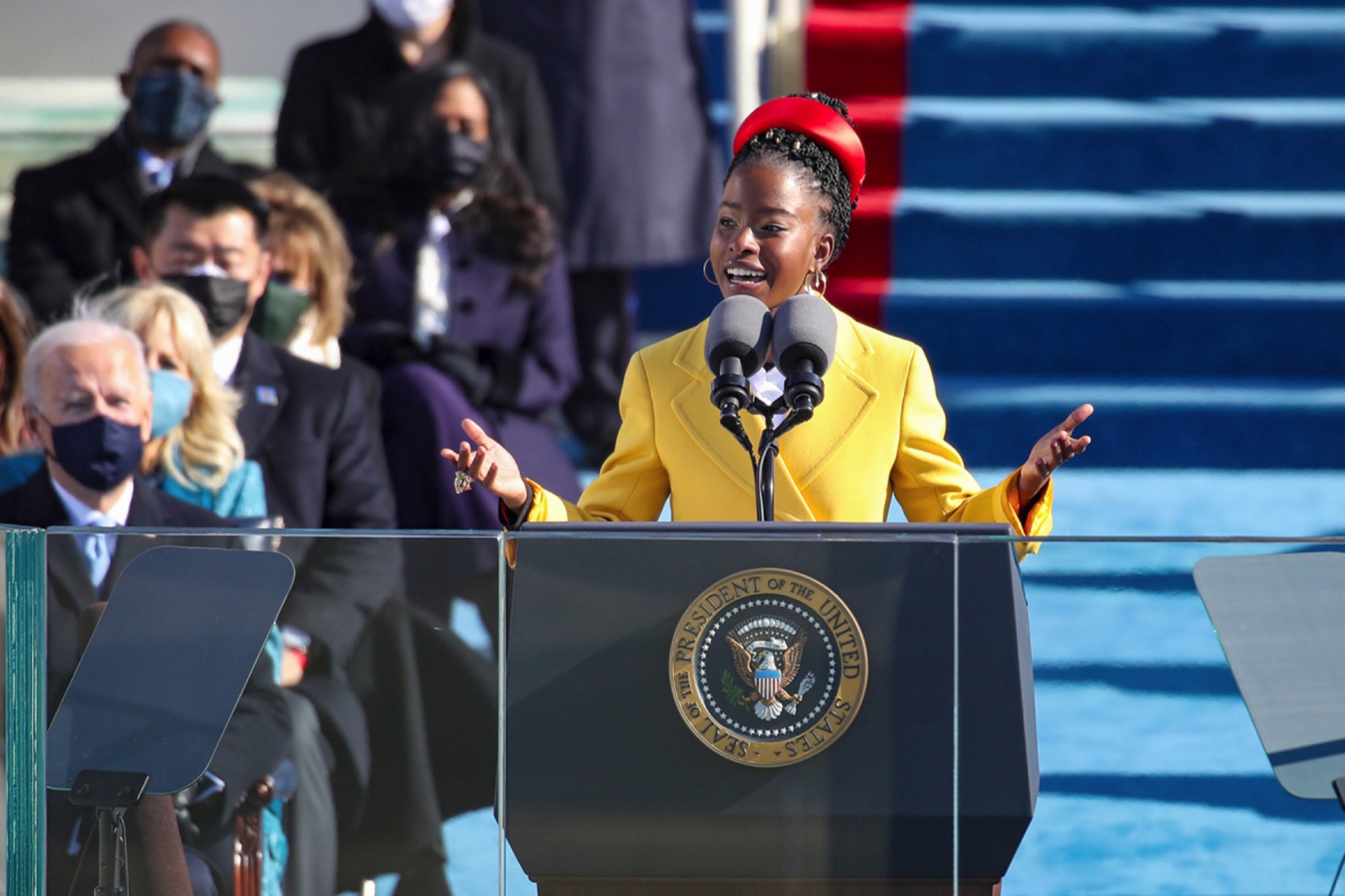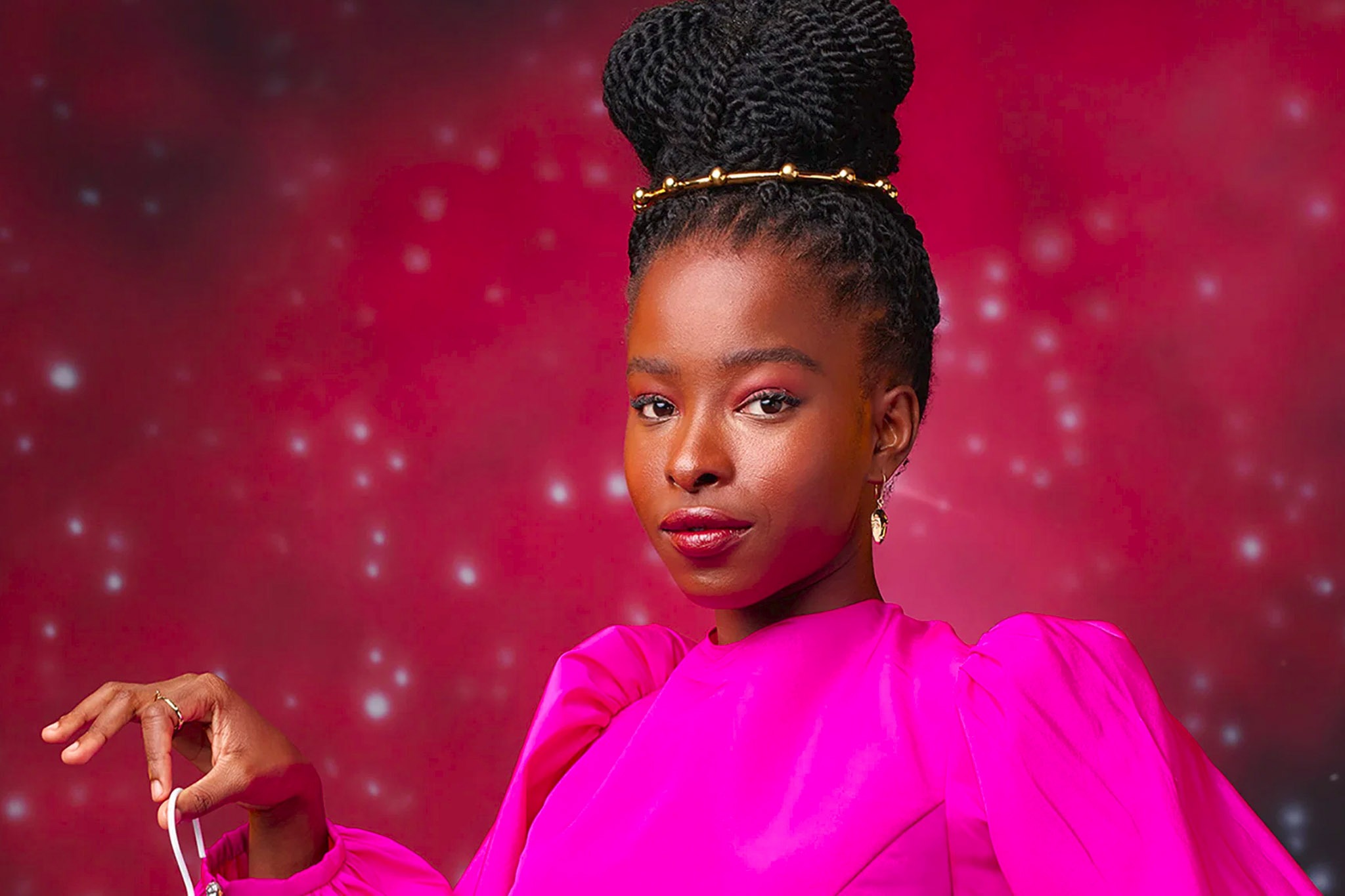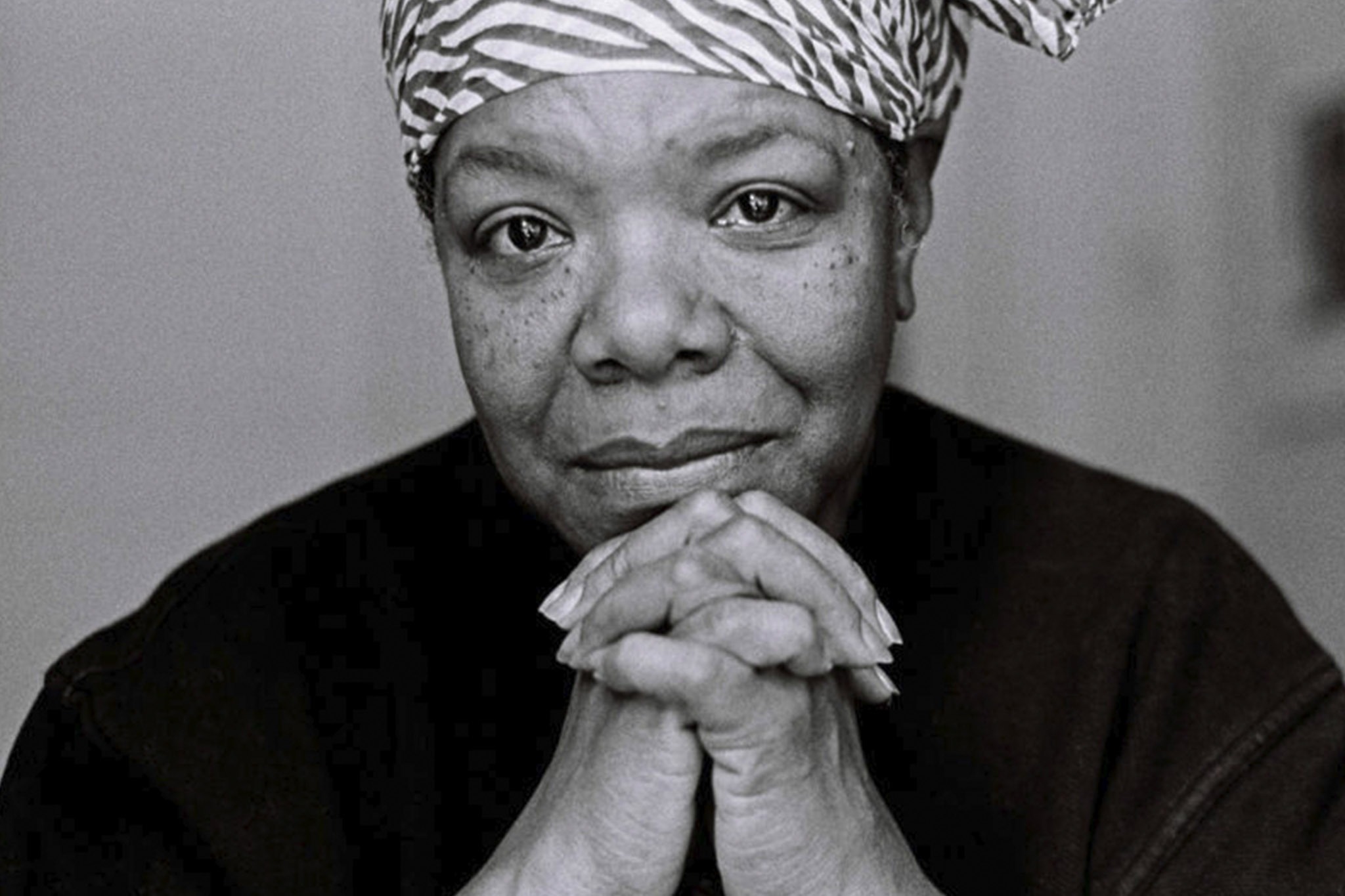A Young Poet Inspires Hope
On a fresh January morning in Washington, DC, Amanda Gorman graced the podium in the country’s capital to recite her original poem, “The Hill We Climb”. The presence and words of this young, ambitious woman standing boldly in front of weary superiors gave a country the dream of a better future.
Gorman delivered her poem with passion. This was her moment, and she owned it with tenacity, pronouncing every word sharply, making sure everyone heard her message. Her graceful hand gestures emphasised the emotion of her poem and captivated the audience.
As the minutes passed, Gorman became more determined to impact the listener, perspiring from the intensity of her performance. As she spoke the words “every breath,” Gorman seemed short of her own. In a mere six minutes, Amanda Gorman gave America hope.

Amanda Gorman performs “The Hill We Climb” at Biden’s inauguration. Photo credit: Rolling Stone
Poetry Leaves a Lasting Impression
Amanda Gorman is not the first individual to address the nation at the White House, so why did her performance at the inauguration of President Joe Biden resonate with so many? To state it simply, poetry.
Poetry is the essence of language, and language is the mirror of the soul. In a few short lines, poetry can deliver emotions that other written or spoken mediums cannot. Every word used has significance, and every word adds value to the poem’s message. Poetry brings sentiment to any topic, and the heart of the poem can resonate deeply with an audience.
The poet must show complete vulnerability when writing, creating intimacy with their audience, connecting them to the words. A poet’s writing technique and word choice can magnify the mood they wish to communicate through their work. In poetry, each audience member can interpret a poetic verse differently, making this creative medium unique, powerful and timeless.
Amanda Gorman’s poetry connected to Americans, and with her incredible talent, Gorman spread a message of optimism for the future. This was a moment the world needed, a moment of poetic brilliance.

Amanda Gorman, 22, was the first-ever National Youth Poet Laureate. Photo credit: Time
Technology’s Impact on the Creative Process
As technology advances into more aspects of everyday life, it appears detrimental to creativity. Thanks to technology, communicating emotion becomes increasingly simplified and seldom do we take the liberty to write to our potential, opting instead for keyboard shortcuts.
In many cases, emojis, like buttons and gifs, replace personalised responses. Instead of capturing true meaningful moments, audiences see a filtered selfie, a soulless post or a motivational quote. For many, originality becomes altered to please an audience rather than share and express true individuality and authenticity.
The Importance of Creativity
Creativity is a powerful process that must include the intent to create, the courage to display and the acceptance for a work’s reception. If uncensored creativity is utilised in everyday life, society will look vastly different. Allowing ourselves to be creative brings purpose to what we do, making our actions exciting and fulfilling.
The importance of creativity is unquestionable, and mediums like poetry remind us of how deep we can connect if we allow it. Creativity teaches innovation, enhances imagination and complements technical skills. With creativity at the centre of focus, tomorrow seems a lot more prosperous.

Acclaimed Poet Maya Angelou. Photo credit: readitforward
The Power of Poems
Poetry is Amanda Gorman’s instrument, and social change is her beat. From racism and oppression to discrimination and marginalisation, Gorman’s words are robust and accessible, representing those who are not heard. She hopes her actions add to the activists before her, continuing the movement towards equality and unity.
Gorman has a strong connection to the African diaspora and is proud to represent it. Her mantra, “I’m the daughter of Black writers who are descended from Freedom Fighters who broke their chains and changed the world. They call me”, strongly indicates she is under no illusion that she is just a small part of a significant movement.
Poetry plays an essential role in the fight against racism and discrimination. For decades, poets have used their talents to scribe injustices and to expose inequality. In 1926, Langston Hughes’s original poem “I, too” explored racial segregation and hopes for a tomorrow without racism, which still resonates in the modern-day.
Highly regarded Gwendolyn Brooks pioneered Black poets’ paths with a strong commitment to racial identity and equality. In 1950, the poet laureate became the first black woman to win the Pulitzer Prize with her book of poetry Annie Allen, leading the way for Yusef Komunyakaa, Natasha Tretheway, Tracy K. Smith, Gregory Pardlo and Tyehimba Jess to follow suit.
Then there is Maya Angelou. In 1993, Angelou recites her poem, “On The Pulse of the Morning” at the inauguration of then-President, Bill Clinton, becoming the first black poet to do so. Angelou’s determination to defeat oppression and racism has influenced many through her poetry of defiance against hate.
Pulitzer Prize winner Gwendolyn Brooks. Photo credit: The Poetry Foundation
Voices of the Future
Amanda Gorman was recently named in the TIME100 NEXT list, placing her among the world’s most promising individuals. Gorman is ambitious and, on numerous occasions, has been quoted saying she will run for the presidency in 2036.
Gorman is not alone; the next generation’s creative voices are motivated and ready to make their mark on the world. With guidance from poets before them, modern-day poets have an enormous role in helping society heal, unite and progress.
Initiatives like Young Black Poets give poets platforms to share their art, whilst Gorman’s OnePenOnePage project elevates youth’s voices. Written collaborations like New Daughters of Africa inspire black women to continue to break creative stereotypes. There are also poetry slams worldwide where poets can perform in front of an audience and judging panel.
Suppose the accessibility to poetry can regrow and find its way back into the education curriculum, onto double-page magazine spreads and into bookshops via multi-book publishing deals. If poetry is more available in the mainstream, poets can connect society like only they can and inspire a new generation of poets in the process.
Gorman’s simple wish is for poetry to become ‘cool’ again, and it seems that her desire might be coming true.

New Daughters of Africa. Photo credit: The Guardian
Encouraging Creativity
Finding a creative outlet can be a challenge. Gorman, Angelou, Brooks, Hughes, and other poets mentioned, may have a natural ability to write poetry; however, they still needed to find the avenues to express themselves to their full potential.
Encouraging creativity is key. It can be simple tasks, such as jotting ideas in a journal, encouraging honest communication, or the vulnerability of a passionate public performance at a local poetry slam. True creativity has many identities and mediums which bring an inspirational authenticity to the work.
In recent times, exposure to unimaginative written and verbal content has increased significantly. While it can be difficult to shift through an abundance of information, there are times where creativity clearly shines through, such as a heartfelt poem at a U.S. presidential inauguration. Shifting focus to allow true creativity and prioritising the importance of innovation can only make this world a better place, a creative world filled with hope.

